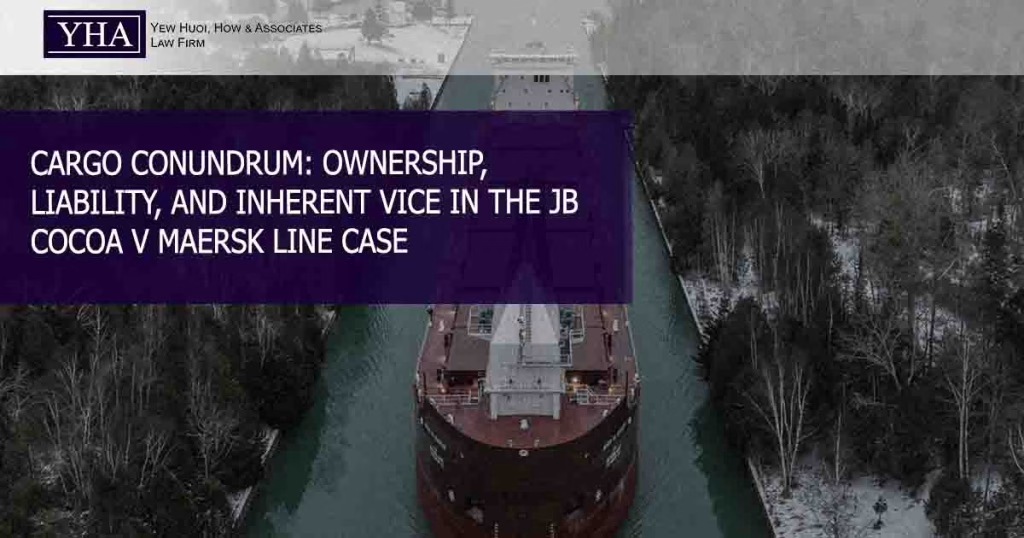Summary and Facts
In the recent ruling from the English King’s Bench Division in JB Cocoa Sdn Bhd & Others v. Maersk Line AS [2023] EWHC 2203 (Comm), JB Cocoa Sdn Bhd and others brought a claim against Maersk Line for damages relating to a shipment of cocoa beans that suffered condensation and mould damage during transport from Lagos to Malaysia. The claim was primarily based on allegations of breach of duty of care under the bill of lading, but key legal questions regarding the carrier’s liability, the condition of the cargo at loading, and the applicability of the Hague Rules were at the heart of the dispute.
Legal Issues
- Whether the deterioration of the cocoa beans between discharge and delivery constituted a breach of Maersk Line’s duty to care for the cargo post-discharge.
- Whether Maersk Line fulfilled its obligations under the bill of lading and complied with the Hague Rules in handling and transporting the cargo.
- Whether JB Cocoa and the other claimants had the necessary standing as owners of the cargo at the time of the damage to pursue their claims.
- Whether the defence of inherent vice was applicable, indicating that the cargo’s damage was due to its inherent properties rather than negligence by Maersk Line.
Court Findings
- The court found that JB Cocoa and other claimants lacked standing as owners of the cargo at the time of the damage.
- This was due to the chain of sales agreements and the terms of ownership transfer under CIF (Cost, Insurance, and Freight) conditions. The evidence showed that JB Cocoa had not proven that it became the legal owner of the cocoa beans before they were damaged.
- According to the judgment, ownership of goods under CIF terms typically transfers upon shipment, but there was no sufficient evidence that property in the cocoa beans had passed to JB Cocoa at any point before the damage occurred or even before delivery.
- JB Cocoa did not have the legal ownership or possessory title to the cargo at the time of the damage, which was required to sustain a claim in negligence.
- Furthermore, communications involving the final receiver identified JB Foods, not JB Cocoa, as the owner at the relevant time.
- The Hague Rules only applied to the period up to discharge, and Maersk Line was not liable for post-discharge issues.
- The cargo’s damage was caused by prolonged containerisation, but the defence of inherent vice was raised, suggesting the cargo was prone to damage due to its inherent properties.
Practical Implications
This case reinforces the strict interpretation of the Hague Rules in commercial shipping contracts, limiting a carrier’s liability once the goods are discharged, unless specific provisions indicate otherwise. The ruling also highlights the challenges in proving ownership and liability when dealing with complex international shipping and commercial agreements.

